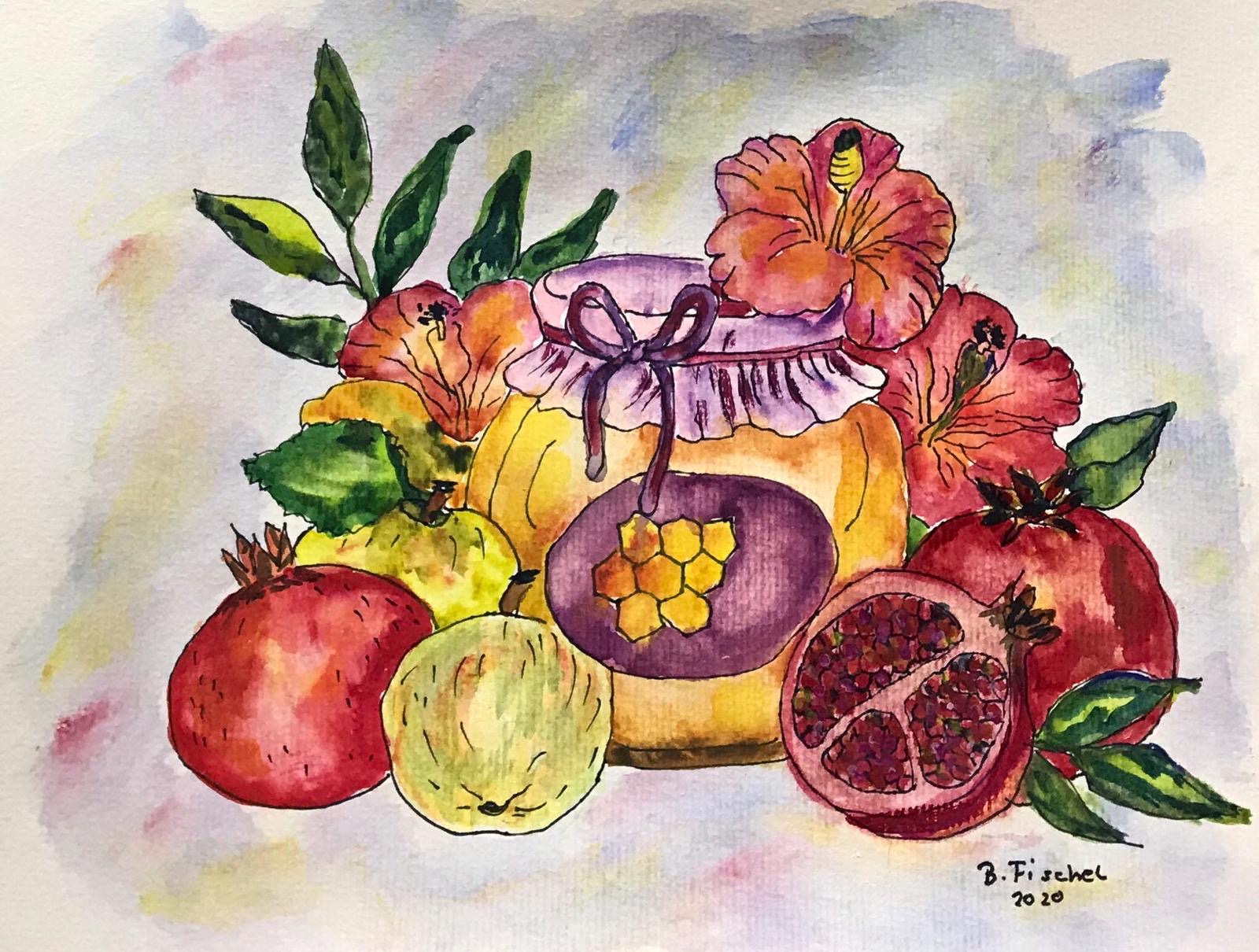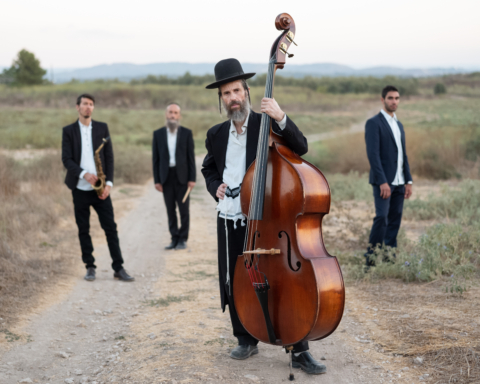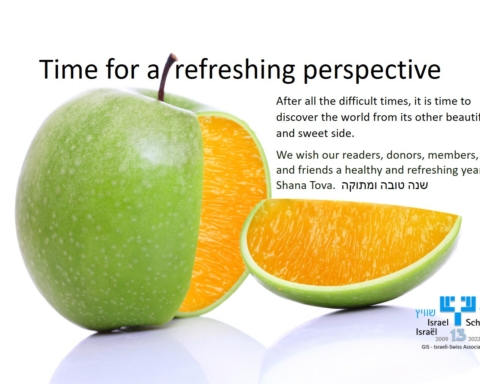Our Israel Between the Lines team wishes all of our readers, donors, friends, and family a healthy, happy and sweet Rosh Hashana. We wish you a holiday full of meaning, connection, and celebration and love, wherever you are in the world.
We’re celebrating the Jewish New Year like never before – 2020 style AKA locked down. While there is a deep sadness that families won’t gather in feast like every other year, perhaps this break in the norm is exactly what we need as a people. Perhaps we’re living a divine and sacredly timed opportunity, begging us as individuals to retreat and turn inwards, literally forcing us to make space in our time to reevaluate our past year, reflect on our wrongdoings, and renew our values.

As the evils of our world continue to rise up, it is crucial that we, as individuals as part of a larger whole, listen and receive the message being delivered to us, here and now – because as a people, it seems like chaos and contamination are imminent. It seems like humanity has strayed from our simple and present path, and it seems like right now, we have a choice.
The three weeks of high holiday season is known as a time of teshuva, a value deeply embedded in Jewish religion and culture. Teshuva is commonly translated to mean repentance, yet the word’s etymology stems from the Latin word, pain. Not necessarily the bad kind of pain, but the growing kind, the one where we are stretched and expanded – invited to grow just a little more deeply into ourselves.
How do we manage the exponential growing pains of 2020? Teshuva also means “return.” Perhaps a return from sin, and so repentance. Maimonides, the great Jewish thinker, lists three phases of repentance – desisting from sin, confessing, and feeling regret. By reflecting throughout this cycle of repentance, we can return from sin – which implies that first and foremost, we came from good.
Can returning to where we came from be the answer? Teshuva also translates to “answer,” and every answer assumes there is a question. Without each of us questioning ourselves, our ego, our self, our essence, our evil – how can we make the return to good, and do so as a collective?
What does it mean to return to good? For me, it means releasing the expectation and exploitation of society and getting back to the basics of what matters. It means letting go of the weight, the noise, and the fear, and deeply reflecting on the values that support a humanity which practices integrity, sustainability, authenticity, and freedom. It means personally and collectively setting the intention to move forward from this year of darkness to welcome an era of light.
How can we move forward and return at the same time? The truth is, what comes easily is not as powerful as what requires moral effort. Yet in a world that works towards creating more ease, perhaps it has become more challenging to flex our human muscles of morality. The more effort each of us is willing to make, the more power and chance we have to return as a collective.
What must we do? Stop everything. Confess truly. Regret fully. Question the ego, so that we can return to our essence. Return to the good. Trust in the good. Believe in the good. Practice good. Commit to using your internal resources. Find and connect to your moral compass, your intellect, your emotion, your truth, your wisdom. Move out of your head and into your heart. Because in a world scattered in mind and madness, the answer is always a return to love.








